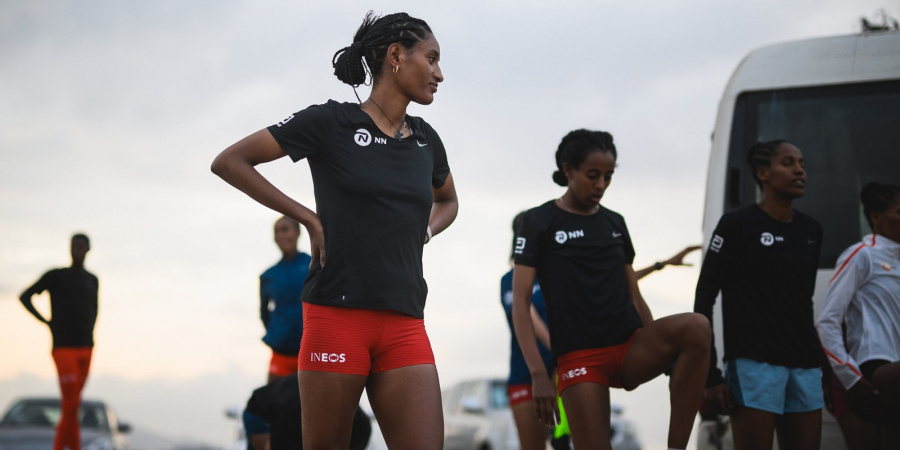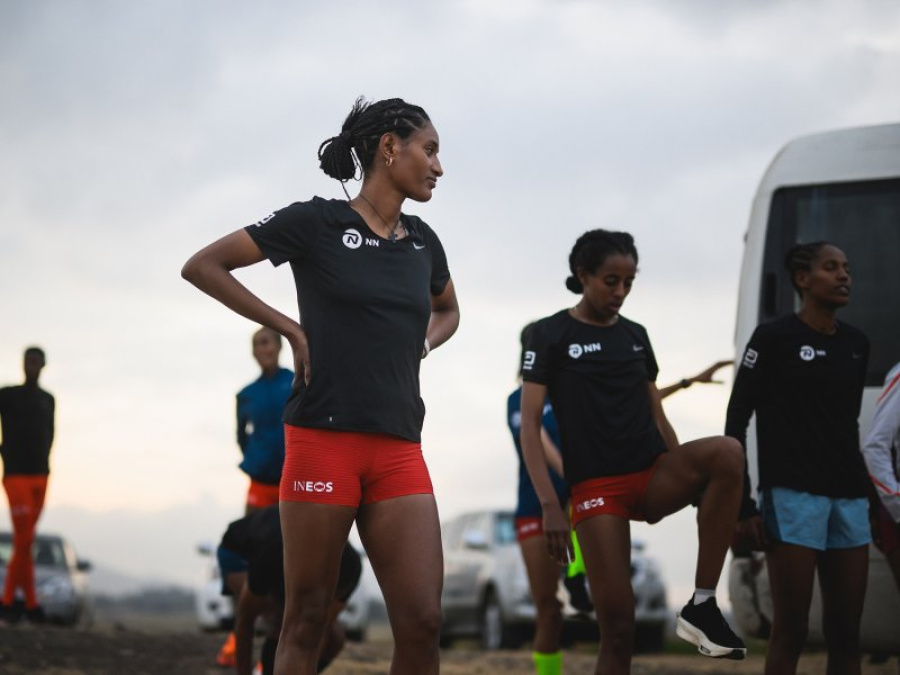

Where We Train: Ethiopia
The roads are quiet, the sun slowing struggling to say hello. The people of Addis Ababa enjoying some final moments of restful sleep.
The 5 million strong metropolis will soon explode in a wave of colour, energy and emotion.
But for now the only sounds that break the silence, beyond some waking cattle are the opening and closing of car doors, followed by the patter of feet, their owners well aware of the work that is to come.
Tessema Abshero hasn't yet touched 40, but it has been a busy life he has already enjoyed in the world of distance running.
An accomplished athlete, in 2008 his 2:08:26 placed him fourth at the Hamburg Marathon, and he has three times competed in the World Cross Country Championships. In 2003 he finished 12th in the senior men's short race, before returning one day later to earn eighth in the U20 race.
Yet on this morning in Sendafa, Abshero occupies his current position. The coach to 60 athletes, ranging from budding juniors to world record-breakers, the 38-year-old and his assistants (his brother included) manage the development of some of Ethiopia's finest marathon runners.
Unlike their southerly Kenyan neighbours, many of which live together in communal camps, the setup of Abshero's group is slightly different.
With the exception of some juniors who are being hosted in a house together, the majority come from various pockets of the sprawling city that is Ethiopia's historic capital.
Some living with family, their own children included, others with friends, all convene each morning at around 6am wherever Abshero has set that morning's session.
The location will vary based on the demands of the programme. For long runs, Abshero likes the hills of Sendafa. Rising up to 2,800m of altitude, here the marathoners will hone their heart and legs over 35-40km of steady work.
Never will the athletes grow stale of the routes, with Abshero having many deputies to step in and provide a different kind of challenge.
Kality to the south of Addis Ababa, similar in altitude to Sendafa, its undulations have been the proving ground of many an Ethiopian great.
Heading lower, Sebata to the southwest plays host to many of Abshero’s sharper more intense sessions, its more forgiving altitude providing an opportunity for the athletes to add speed to their well-worn legs.
The slopes of Mount Entoto to the north and its limitless forests, or to Sululta and the modern facilities of Kenenisa Bekele’s high altitude resort.
The options are endless, with one exception.
Never will Abshero's group get to enjoy the abundant oxygen sea level offers. Every breath they take, slow or fast will invariably be in an environment where the lungs fight that bit harder to take in the oxygen so important to move your body to the edge of its limits.
Rarely will athletes hit anything approaching race pace, instead trusting in the springboard effect of racing at lower climbs, rich oxygen pumping through their muscles as its supply is no longer scarce.
Invariably that approach works. Abshero works with four main groups, each arriving at the same 6:00 am meet and setting off in separate intervals half an hour later.
First the 2:21 to 2:24 marathon women. In most other countries this group would be nudging at national records, but in Addis they're generally development athletes looking to make the next step. Not yet ready for the majors, for many it is a matter of time.
For now, they'll be blessed with a depth of training partners many Europeans can only dream of.
Next up and here come some familiar faces. Degitu Azimeraw was only 20 when Abshero reluctantly let her debut over the marathon. An opportunity for her to experience the harsh realities of marathon running, her coach recalls.
She instead won Amsterdam in 2:19.
That must put some pressure on an athlete who's barely no longer a teenager I put to Abshero.
"In Ethiopia it's normal!" he replies.
Azimeraw has since finished runner up in London in 2021, lowering her best to 2:17:58.
Often in lock step with Azimeraw is Yalemzerf Yehualaw. The former world 10km record-holder, the fifth-fastest half marathoner of all-time (63:51), Yehualaw became the youngest female winner in history when she won London in 2022.
Together the pair form the core of Abshero's 2:16 to 2:19 group.
Two further groups wait their turn. First a host of 2:07 - 2:09 men, then Abshero's fastest.
If you watched Berlin this year, chances are one of their faces will be familiar.
Haymanot Alew's 2:03:31 this fall saw the 27-year-old move one step higher up the echelons of world class, his third place adding to a second already that year in Hamburg. He has further podium finishes, in Mumbai, Dubai and Porto.
Over hills, track and tarmac Abshero's athletes will toil, sticking to their instructions and safe in the knowledge that perform well within the group and success anywhere else will not be far away.
As Addis fully wakes up, so they stop, Abshero encouraging his athletes to take on some protein quickly, knowing the return home, blessed with its now gridlocked roads could take three times as long as the morning commute.
Off they disperse. Though the body of their work is likely complete, chances are another run awaits. At 5pm most of the group on most days will head for their second outing, this time closer to their respective homes.
The majority of the women at their peak run between 185km and 195km per week, with the men from 200km to 220km. Gym work will have to find its time somewhere in between.
But these loads aren't some overnight baptism of fire. When Yehualaw came to the group she did months exclusively of gym and flexibility work, with little actual running.
The body must be prepared for the challenges it is to undergo.
As night falls and Addis slowly quietens, Abshero's group will retreat to their beds to recover to go again.
Tired bodies, talented legs, at 6am once more they will meet, a custom to be repeated day-in day-out.
Until one day the car door that shuts, won't be onto the streets of Addis, to the quiet of a sleeping dawn, but to the roads of Chicago, London, or Berlin, to crowds expecting nothing short of the remarkable.
Born in routine, hardened by training alongside Ethiopia's best, when Abshero's athletes find themselves on those streets, be sure of one thing.
They are ready to go.






